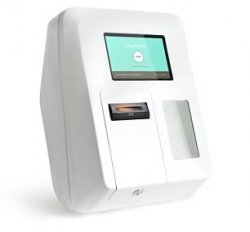Bitcoin wallet how does it work?
- “Partick Bryne, Overstock’s CEO and ‘Bitcoin Messiah’, even gave the keynote at last week’s Bitcoin2014 conference in Amsterdam. If he’s not a believer, who is?” asks Mr. Evans in his opening paragraph (misspelling both my first name and last in a foreshadowing of the general shoddiness of his homework).
- In the next paragraph Evans falsely asserts about Overstock’s acceptance of Bitcoin, “To pay with the Bitcoin button you need a Coinbase wallet.” In this he is simply wrong: Anyone with Bitcoin can pay with that button (I suspect that this mistake is another expression of Evans’ unfamiliarity with Bitcoin and inattention to detail).
- Now jumping to the end (where Mr. Evans buries his lead), “In the end, in this bizarro world, even the Bitcoin Messiah wants greenbacks.” Actually, even the Bitcoin Messiah has to pay his suppliers, and since they want greenbacks, at some point the Bitcoins that customers spend at Overstock must be converted to greenbacks to pay for those goods and services. This basic truth has Mr. Evans so agitated that he sees the whole process as “smoke and mirrors.”
- In developing the previous point, Evans falsely asserts, “Overstock.com never takes possession of bitcoins or anything denominated in bitcoins.” This is also wrong: at checkout our customers’ Bitcoins are moved to our wallet, then Coinbase sells Bitcoins from that wallet back into the market in return for dollars on our behalf (however, we have stated publicly and accurately that we are accumulating Bitcoin reserves equal to 10% of all Bitcoin spent on our site).
- Another paragraph, another blithering idiocy: “It gets weirder. How did you get bitcoins in your wallet in the first place? You were asked to link your bank account to Coinbase.” Actually, there are a plethora of ways one may acquire Bitcoin that have nothing to do with Coinbase, and all of the Bitcoin thus acquired works with Overstock.
- “Overstock...







